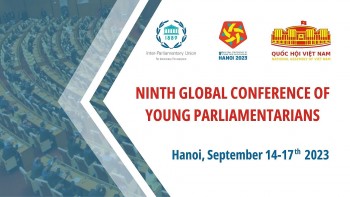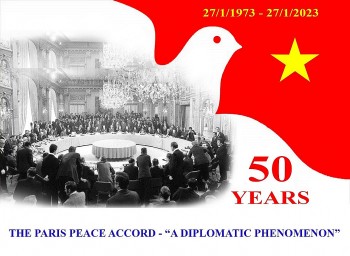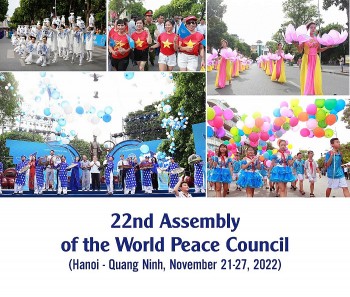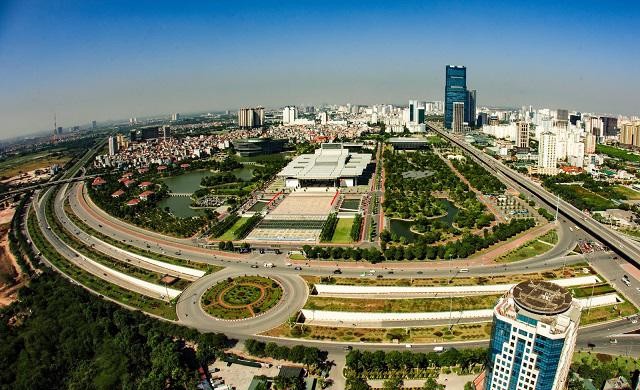Works starts on Vietnam’s first science complex
(VNF)- Construction work of the country’s first-ever science complex that costs nearly US$8 million to build began Monday in the south-central Vietnamese province of Binh Dinh.
The 3.8-hectare complex is housed inside the precinct of the International Center for Interdisciplinary Science and Education, located in Ghenh Rang Ward, Quy Nhon city- the province’s capital.
With an investment of 171 billion VND (7.84 million USD) from the State coffers, the first national science complex will consist of a planetarium, a science museum and an astronomical observatory.
Construction is slated for completion in 2017.
 |
The July 20, 2015 groundbreaking ceremony of the Binh Dinh planetarium and exploratorium. Photo: Vietnamplus.
The complex will be circular in shape, which is said to be completely congruous with the area's natural landscape.
The structure, to be surrounded by rows of lush coconut trees, is designed by French architect Jean - Francois Milou, who also designed the nearby International Center for Interdisciplinary Science Education of the Meet Vietnam Organization.
Speaking at the groundbreaking ceremony, Deputy Prime Minister Vu Duc Dam expressed his hope that the complex and similar works and academic activities in other localities will cherish scientific dreams.
He stressed that if Vietnam is to escape from the middle-income trap, it’s vital that the country maintain its high economic growth for many years, while emphasizing the role of science and technology in the development of any country.
The Deputy PM said the complex would be a source of inspiration for young academics across Vietnam.
He believed the province’s scientific and technological studies would boost production and business activity.
Ho Quoc Dung, Chair of the provincial People's Committee, told a press conference held in Quy Nhon City earlier that the complex will not only serve scientific purposes, but also be a unique tourist attraction.
"The complex is an effective way of promoting science and nurturing people's passion for it," Dung added.
To mark the occasion, the Meet Vietnam Association organized an international conference on physics. The conference was attended by Vietnamese American Professor Luu Le Hang from the Massachusetts Institute of Technology.
Born in 1963, Prof. Hang bagged numerous awards such as the Shaw Prize - regarded as the "Nobel of the East" - in 2012, and the Kavli Prize in Astrophysics - deemed the "Nobel of Astronomy" the same year.
She is currently working at the Department of Astronomy at Harvard University and the Lincoln Laboratory at the Massachusetts Institute of Technology (MIT).
The Meet Vietnam Organisation, chaired by Vietnamese-French Professor Tran Thanh Van, is slated to organise other international workshops on physics and offer classes on astrophysics, particle physics and field physics. The activities will run until July 25.
Deputy PM Dam also partook in a ceremony to announce a master plan for Quy Nhon City and its surrounding area.
He handed over a decision dated April 14, 2015 signed by Prime Minister Nguyen Tan Dung which outlines the construction of the city with a vision to 2050 to Dung, chair of the provincial People's Committee.
The decision stipulated that Quy Nhon City will cover an area of more than 67,780 hectare, and comprises the current Quy Nhon City, Tuy Phuoc district and parts of Van Canh and Phu Cat districts.
Under its development goals towards 2025, the city strives to become one of the main hubs in the central coastal region and to develop its industry, sea ports, services and tourism sectors. The city's population is projected to reach 620,000 in 2025.
Quy Nhon is expected to grow into a national marine economic centre with a population of 650,000 to 680,000 by 2035, and hold an integral position in Vietnam and Southeast Asia./.
by VNF
Most read
Recommended
 National
National
Egyptian Newspapers Hails Dien Bien Phu Victory of Vietnam
 National
National
European Union To Strengthen Cooperation With Viet Nam Union of Friendship Organizations
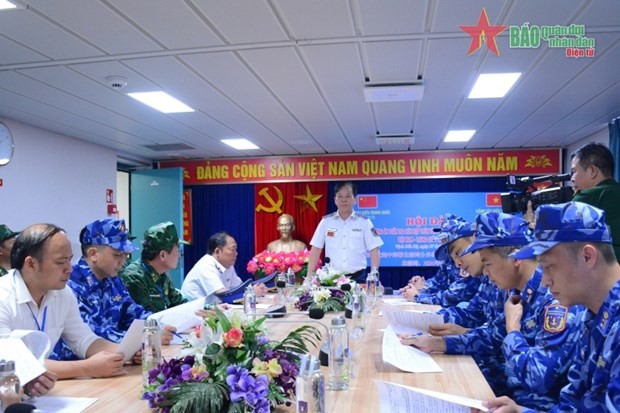 National
National
Vietnam News Today (Apr. 26): Vietnam, China Conducts Joint Patrol Along Demarcation Line in Gulf of Tonkin
 National
National
Vietnam News Today (Apr. 25): Vietnam Emerges As Fastest Growing Digital Economy in ASEAN
Popular article
 National
National
ASEAN's Robust Youth - The Key to the Region's Future Success
 Focus
Focus
Foreign Minister Highlights Significance of Geneva Accords
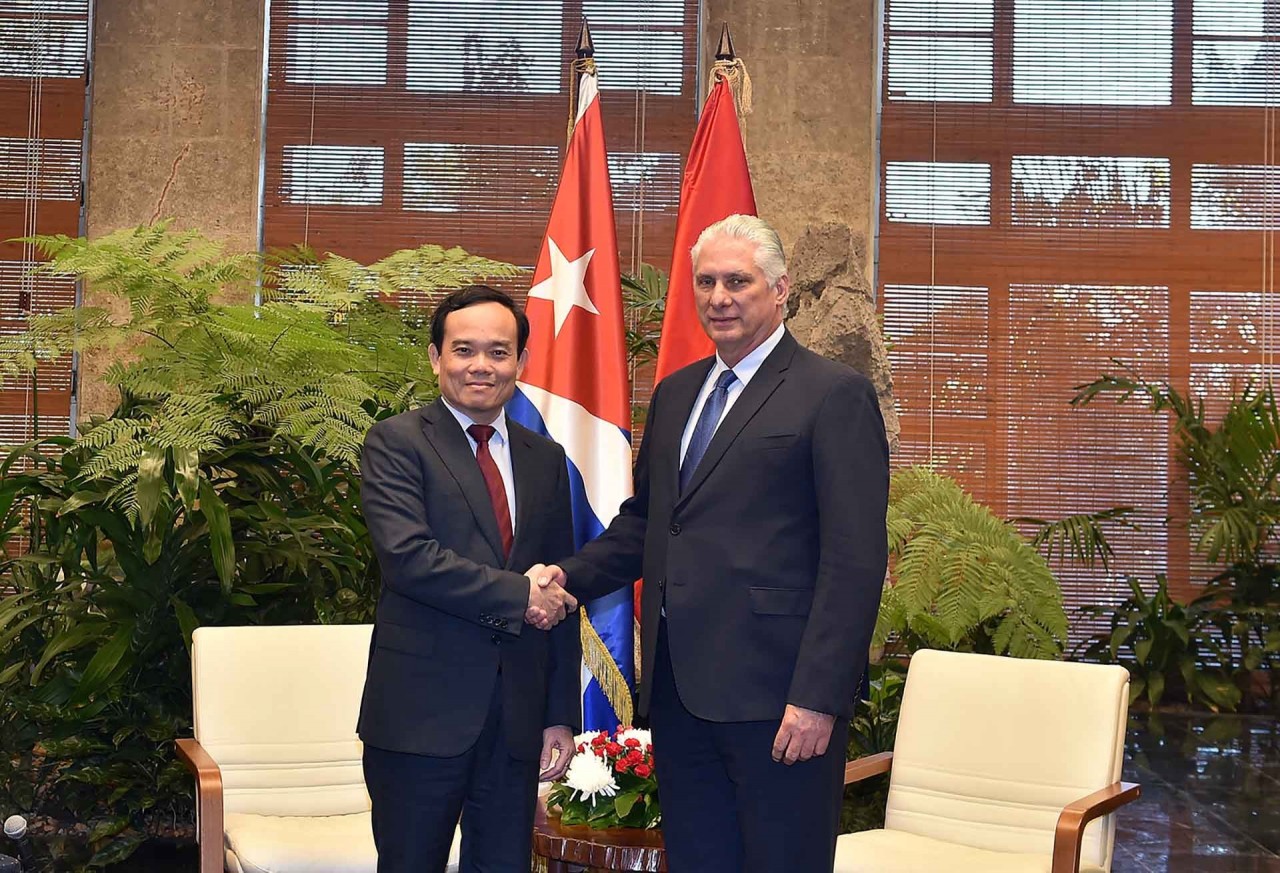 National
National
Deputy Prime Minister Tran Luu Quang's Visit to Cuba And Venezuela Deepens Relations
 National
National

